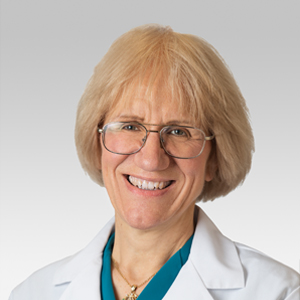6 Things Every Parent Should Know About Craniofacial Syndromes
Published June 2022
Support and Insight for Cleft Palate and Other Craniofacial Conditions
Craniofacial syndromes encompass a wide range of anomalies of the face and head that can result from abnormal growth patterns, genetics, disease or trauma. It’s very common; cleft lip alone is the fourth most common birth defect in the U.S. Craniofacial conditions can develop early in a baby’s in-utero development and there is no one single factor that causes it.
“Although this is a widespread condition, it can still be overwhelming and confusing for parents—and they should know we are here to help them,” says Rima Birutis, pediatric speech-language pathologist at Northwestern Medicine Marianjoy Rehabilitation Hospital. “There are treatments and resources available to help these children develop normally and lead healthy lives.”
If your child has a craniofacial condition, here are six things to keep in mind:
1. The Right Team is Indispensable
“Clinical preparation and experience are critical to quality care,” says Birutis. Your child may be seen right away by a number of specialists, and their communication with you is just as important as their communication with each other. Centers with large craniofacial teams working together have the advantage of greater experience.
“This definitely leads to better results and fewer complications,” says Mary Keen, MD, medical director of Pediatric Rehabilitation at Marianjoy. In addition, ongoing research at these centers offers patients the latest breakthroughs in treatment and technology.
2. Time is of the Essence
Early treatment with an interdisciplinary team often leads to the best development for children with these conditions. Correcting physical abnormalities before babies start to rely on those parts of their bodies – for communication or other purposes – can prevent babies from learning irregular behaviors to compensate. Early intervention can also prevent developmental delays.
“This is a very specialized area of pediatric feeding-swallowing and speech-language therapy,” says Birutis.
3. Your Child May Require Numerous Surgeries
Your child will likely need at least one surgery. Most surgeries occur as early as three months and end by 12 months, although secondary surgeries are sometimes needed later in life to treat lingering problems as the child grows.
“Another advantage of receiving care by a comprehensive team and facility is that, often, more than one operation can be performed by different specialists at the same time—with every effort made to minimize the amount of time the child needs to spend in the hospital,” notes Dr. Keen. Craniofacial centers with a qualified staff, like the surgeons at Northwestern Memorial Hospital and pediatric rehabilitation clinicians at Marianjoy, are equipped to accomplish this with the least amount of physical, emotional, and financial strain.
4. You Can Use Normal Baby Speak With Your Infant
It may seem counter-intuitive, but it’s important to use normal speech stimulation with your baby—encourage those coos and babbling. Your child’s speech production will be different than normal and it may sound hypernasal. They should be encouraged to play with sounds as all children do. Orally produced sounds are much preferred over glottal, or windpipe-based, sounds. Glottal stops (think of the air sounds between the words of “uh-oh”) should be ignored and not reinforced as communicative, because they will be very difficult to change as the child gets older.
5. Feeding is Different
Children with craniofacial conditions will need to eat differently than other children. Because different facial areas, like the oral and nasal cavities, may not be separated, special tools may be required to keep food out of areas it shouldn’t go. Your care team can help you determine what course of action is best for your unique case.
6. You’re Not Alone
For many families experiencing medical challenges, it’s helpful to know they are not alone on their journey. Finding a community of people going through the same thing can help with emotional support, sharing tips, and solving problems together. For children especially, it can boost self-esteem and a sense of connection to meet others like them.
Learn more about treatment, classes, and upcoming events through the Pediatric Program at Marianjoy Rehabilitation Hospital.






